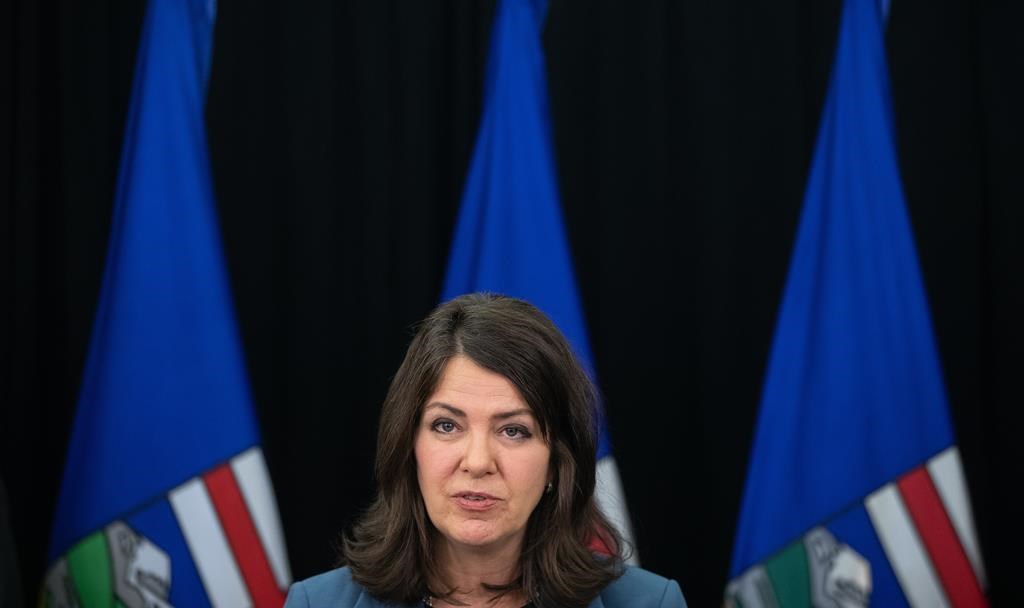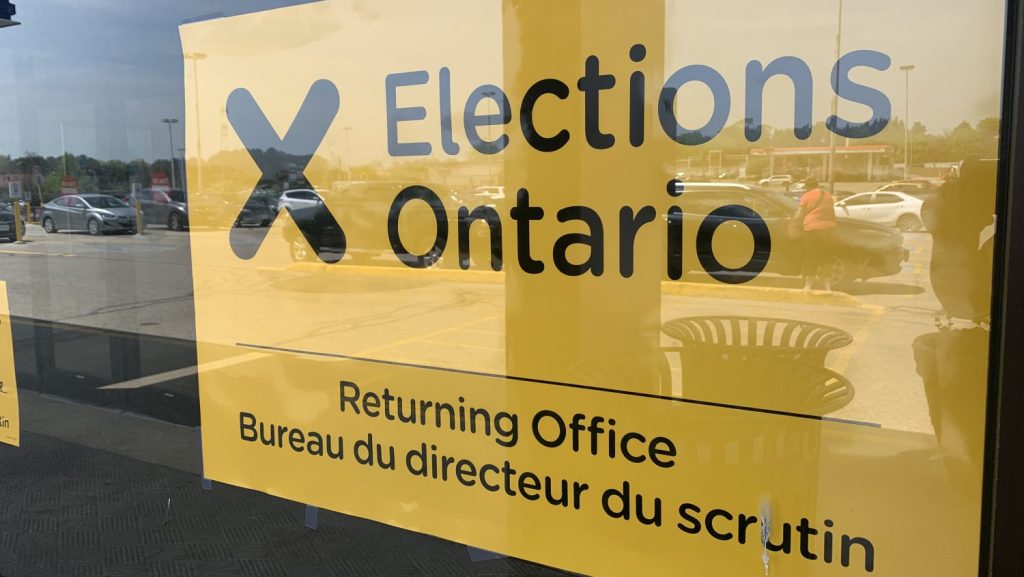Smith says she’ll reveal details next week on threat to invoke sovereignty act

Posted Nov 25, 2023 04:39:01 PM.
Last Updated Nov 25, 2023 04:40:12 PM.
EDMONTON — Alberta Premier Danielle Smith says she will reveal details next week on her threat to invoke her government’s sovereignty act over federal clean energy regulations.
Smith told her provincewide radio call-in show on Saturday that she’s “had it” with federal Environment Minister Steven Guilbeault, saying he “doesn’t care about the constitution” and noting Ottawa has recently lost two court cases dealing with disputes over federal-provincial jurisdiction.
The Alberta Sovereignty Within a United Canada Act, which Smith’s government passed last year, would allow the province to reject federal laws or regulations when the province thinks they cause harm to Alberta. It has not been tested in court.
Last month, Smith laid out conditions under which her government would enact portions of the law.
She told reporters an “aggressive” cap on oil and gas emissions including methane, a cap on emissions from fertilizer use or a 2035 target for a net-zero electricity grid are all lines in the sand.
Smith told the radio audience Saturday that people will have to wait until Monday to “see the architecture” of how the act will be invoked, but noted Alberta won’t put electricity providers at risk of going to jail if they don’t meet what she called Ottawa’s “unachievable” targets.
“I have to tell you that I didn’t want to do this. I really did, from the very first conversation I had with (Prime Minister) Justin Trudeau, I wanted to work with him on this. We put it together the table with the negotiators so we could find areas of common ground,” Smith said.
“But Steven Guilbeault, I don’t know, he’s a maverick. He doesn’t seem to care about the law, he doesn’t care about the constitution. I do, and we’re going to make sure we assert that.”
Smith has previously said utilities executives would face jail time if they don’t meet federal emissions targets, a claim which Calgary Liberal MP George Chahal called “ludicrous” last month.
Smith maintains there’s reason to believe power generators could achieve a later target of 2050. Sooner, she’s said, could put the grid at risk of failure during peak periods.
Her United Conservative Party’s throne speech in October repeated previous promises to enact portions of the sovereignty act if Ottawa brings in climate change measures that the province deems aren’t in its interest.
A Federal Court ruling on Nov. 16 struck down a cabinet order underlying Ottawa’s ban of some single-use plastics, which Guilbeault has said the government will appeal. And in October, the Supreme Court of Canada ruled that federal legislation dealing with the environmental effects of major developments was unconstitutional because it sought to regulate activities within provincial jurisdiction.
“They’ve lost two court cases now — one at the Supreme Court level and one at a Federal Court level — saying they have to stay in their lane,” Smith said of the Feds on Saturday.
“Their lane is clearly not electricity. Electricity, if anyone wants to read the constitution under Sec. 92, falls to the provinces.”
Guilbeault released draft regulations in early August to establish a net-zero energy grid by 2035. He has said Canada does not want to be left behind as the United States and other G7 countries move toward clean electricity.
He’s also said any claim that building a clean electricity grid in Alberta will lead to blackouts is misinformation, designed to inflame rather than inform.
This report by The Canadian Press was first published Nov. 25, 2023.
The Canadian Press








